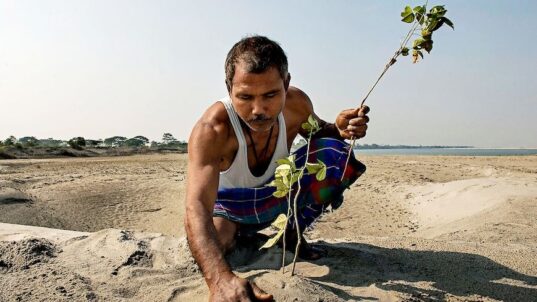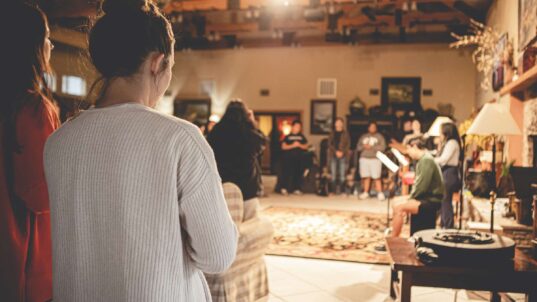In my last note I described our public discussions in terms of but four key aspects: active facilitators; small groups; interactivity; and exploration and development. Together they paint a very broad-brush picture of what we’re aiming to do—and how we do it. To further round out that picture, I thought it might be helpful to elaborate on this description and bring it into sharper relief by contrasting IF public discussion with a cross section of 11 well-known means of conducting democratic discussion:
- Parliamentary Bodies
- Town Hall Meetings
- Direct Democracy
- “Bureaucratic Networks” among government officials, usually in the executive branch of government
- Expert Commissions
- Supreme Court Deliberations
- Juries
- Public Hearings
- Debate
- Mass Media
- Issues Forums
First, a general comparison: of the types I’ve included in this list, jury deliberations are perhaps “most like” IF public discussion. Nevertheless, there remain two crucial differences between the two processes. Juries properly (1) focus on “the facts” and (2) are charged with making decisions—i.e., “rendering a verdict.” IF public discussions, by contrast, focus on exploring and developing an area of concern and conceptual possibilities for addressing it. In all other cases, the differences between alternative forms of democratic discussion and IF public discussion are both at least as significant and more numerous.
Here are some of the particular aspects of IF public discussion that are most often lacking in other forms of democratic discussion.
- While interactivity can characterize other forms of democratic discussion, it usually happens “by accident” rather than through reliance on regular supports such as active facilitation and/or small groups. The two exceptions—Supreme Court and jury deliberations—both significantly diverge from IF public discussion in being aimed at (legal) decisions rather than conceptual exploration and development of contrasting conceptual possibilities.
- None of the other eleven forms of democratic discussion regularly engages in the exploration and development of conceptual possibilities. “Bureaucratic networks” perhaps do so occasionally, but only by resisting the need—ever present in bureaucracies—to solve the immediate practical problems of government.
- Juries probably come closest to relying on small groups of diverse citizens. With twelve members, the typical jury perhaps qualifies as a small group of citizens. Yet the two processes most often used to constitute juries (random selection and voir dire) are intended to promote representativeness and neutrality rather than diverse views—and may even have the effect of discouraging them. Though important in courtroom settings, both representativeness and neutrality can discourage the kind of unorthodox or unconventional thinking most useful in the exploratory and developmental discussion of conceptual possibilities.
- Although most of the other forms of democratic discussion typically rely on facilitators, facilitators may lack training in exploratory and developmental discussion.
None of this means that IF discussions are superior to these other forms of discussion, only that they are distinctive. Democracies properly incorporate many forms of discussion. Exploratory and developmental discussion featuring small group interaction guided by an able facilitator is, I believe, an important one to include in the mix. It is also one that is perhaps too often overlooked in our rush to find and assert answers, as I will describe more fully in a future post.
* For an earlier, much expanded, version of this essay, see essay IF-3 at: https://www.interactivityfoundation.org/wp-content/uploads/2009/12/Public-Discussion-paper.pdf



